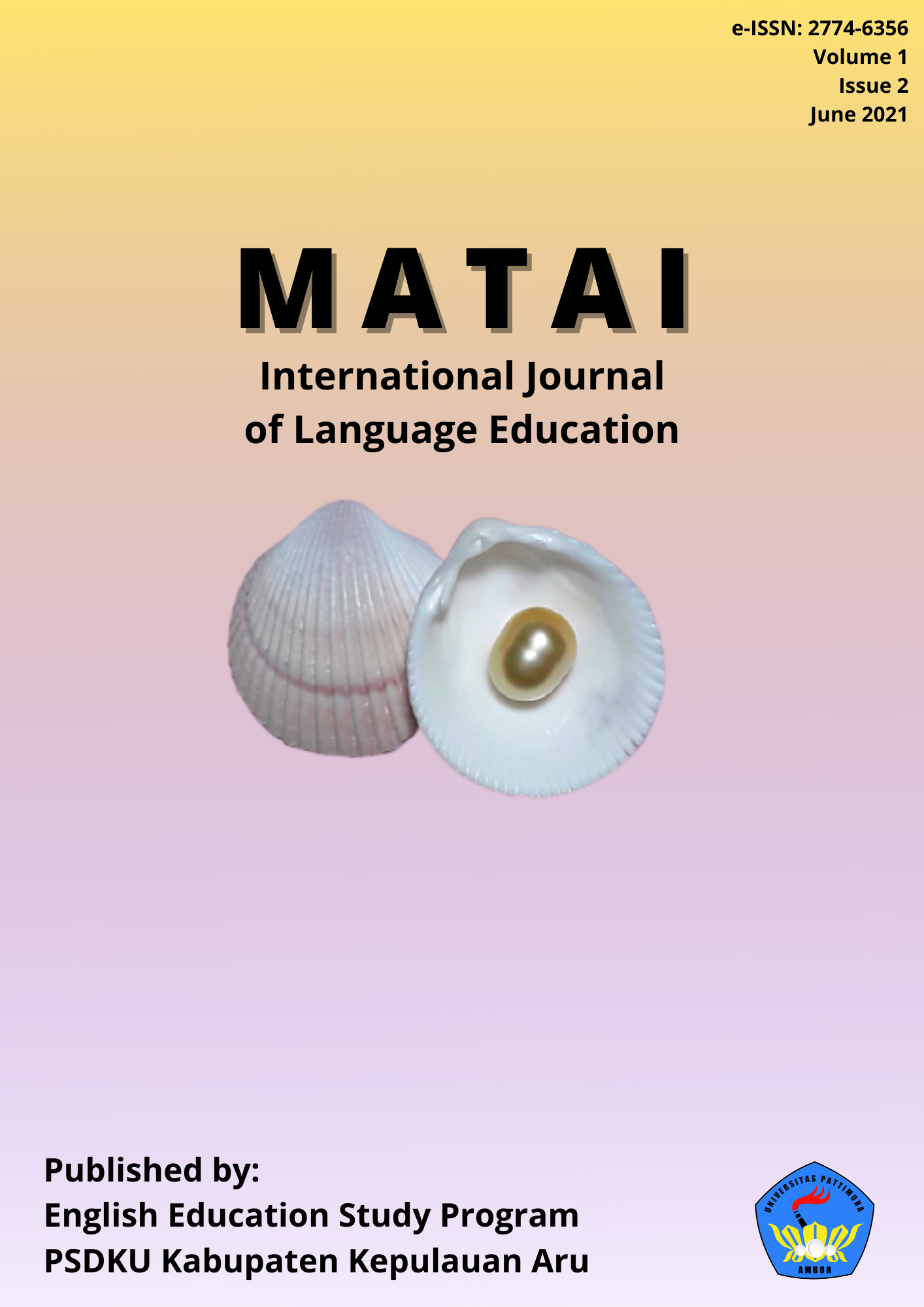Maximized The Young Language Learners’ Motivation Via Songs and Increasing Their Speaking Skill Ability
Abstract
This article is aimed to describe the advantages of why songs are important to support the English language learning process. This article also explains the position where English is learned as the foreign language in Indonesia. Songs are learning resources with many advantages, including linguistics resources, affective/psychological resources, and cognitive resources. Songs can be good learning sources as teaching media for English language classes. As the world of children goes with songs and like to sing it. They love saying chants in rhythm and enjoy repeating phrases that rhyme. Moreover, they enjoy moving to the rhythm, clapping hands, tapping the feet, and dancing. Therefore, music and movement naturally connect to children's hearts, minds, and bodies. Teaching young learners has to be enjoyable for the classroom as young learners often use songs and movement to engage children in the class. Using songs and movement is one of the best ways to teach young learners. Making the learning process interesting for children is important, especially for young learners who learn English as a foreign language. Songs can also support the four skills for the learners such as speaking, reading, writing, and listening. Another language advantages are that pronunciation, vocabulary, and grammar are provided in learning through songs. It is such a duty for teachers to create a fun and enjoyable atmosphere in teaching. Using the textbook is no longer efficient for teaching young learners nowadays. The teacher tends to be more creative and tend to find more variation in delivering teaching materials, whether using songs from the internet, CD or tape recorder, or television. There are several benefits for language learning using songs for young English learners' classes. Music and songs can do the following: provided authentic, meaningful context, introduce children to the target culture, emotional and social effects, provide opportunities to practice oral language, Aid in retention and comprehension.
Downloads
Copyright (c) 2021 Matai International Journal of Language Education

This work is licensed under a Creative Commons Attribution 4.0 International License.
Authors who decide to share their articles with this journal must agree with these requisites:
|
1. The author, as the copyright owner, gives Matai the right to publish their work 2. Authors can share their articles, but they have to use Matai's published version by acknowledging Matai as the source. 3. Authors are encouraged to share their work online in order to let people know about their articles which can lead to more citations of the published work. |



